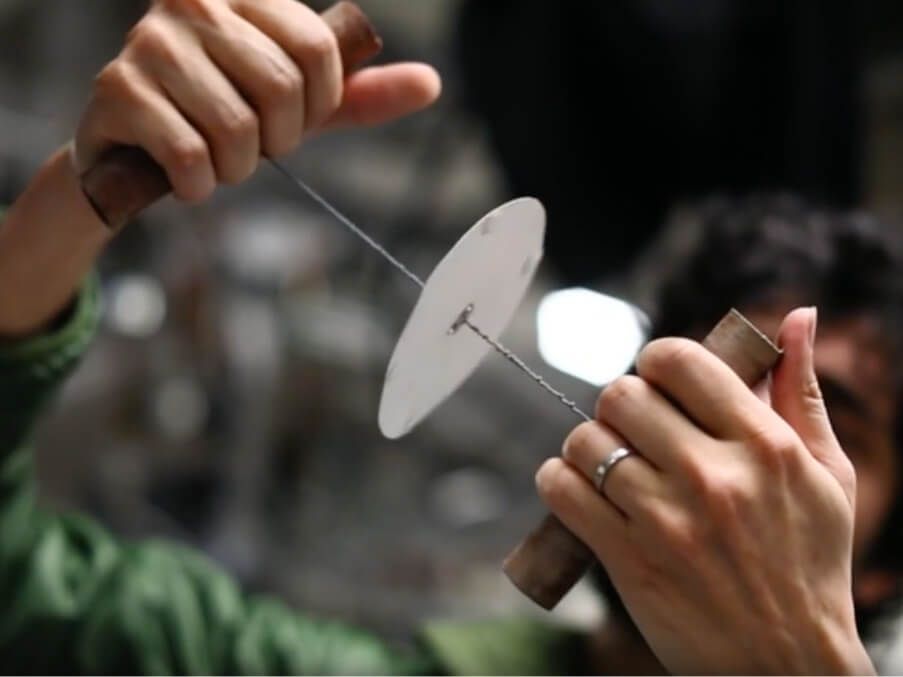Small solutions for big problems

As humans, we tend to generalise and to internalise as true what we see frequently, and nowadays technology is about big investments of millions on R&D to develop new technologies. But the main problem with generalisation is that we may forget other ways of doing things even though they may be as valid or even more compelling to solve some issues.
Some scientist and researchers are focused on this topic, making low cost, effective and scalable solutions for improving the quality of life of as many people as possible or even saving lives, hereunder some examples are explained.
Foldscope & Paperfuge
According to the World Health Organization every two minutes a child dies from Malaria, but early diagnosis and treatment of malaria may reduce the effects of the disease, prevents deaths and also contributes to reducing malaria transmission. To diagnosticate a person with malaria is necessary a blood microscopic test, because the different elements on the blood and malaria-infected blood cells have a different density, by centrifuging the blood and watching it under a microscope we are able to see if a person is infected.
Taking all that into account Many Prakash and his team at Stanford developed two great inventions to detect malaria on a cheap and easy way. He was born in India and growing up they didn’t always have the tools they needed, so he developed what he calls “Frugal science”, inventing existing tools but as cheap as possible because every zero you add to the price means millions of people losing access. They developed both the centrifuge and the microscope.
The centrifuge is known as “Paperfuge” which is inspired by the whirligig toy. With this simple mechanism of strings, they are able to rotate at 20.000 rpm, enough to separate the blood and the best part is that costs 18 cents instead of the 10.000 dollars that a lab centrifuge costs.
![[paperfuge]](/content/posts/paperfuge.jpg)
And the microscope, “Foldscope” is made by folding paper, as the name suggests, a sphere of crystal, which acts as a lens, and a led to illuminate. This paper microscope only costs 50 cents and is able to magnify up to 2000 times, which is more than enough to detect the infected blood cells.
![[foldscope]](/content/posts/foldscope.png)
LoCHAid
Developed by some students and researchers at the Georgia Institute of technology, “LoCHAid” is a modular hearing device which consist of a board with the necessary components for amplifying and filtering the frequency of the sound and finally transmit that sound through headphones, all enclosed on a 3D printed case.
![[LoCHAid]](/content/posts/LoCHAid.jpg)
Nowadays this devices usually costs between $100 and $500, which is no doubt too much money for some families, LoCHAid would cost around 98 cents when mass-produced at 10.000 units, which is a substantial difference. The product complies with the recommendations by the World Health Organization and the Consumer Technology Association of the US for this type of products.
Offline-pedia
In the Ecuadorian Andes, there are small villages that are quite isolated, so knowledge distribution is difficult, to solve this, two engineering students, Joshua Salazar and Jorge Vega, from Yachay Tech University, came up with the idea of using old CRT TV screens as Wikipedia readers. The main reason CRT TVs are used is because in 2018 the TV signal in Ecuador changed from analogical to digital so a lot of them were heading to become electronic waste.
![[offline-pedia]](/content/posts/offline-pedia.png)
Their intention is to repurpose the TVs which would be thrown away and to use environmentally friendly materials such as wood for the case. The software and Wikipedia content is stored on a Raspberry Pi. The total cost taking into account everything is much less than $100, which is not bad for most of the knowledge available in Wikipedia, many kings, emperors of philosophers wouldn't even dream of having that much knowledge accessible to them.
Not only they have offline Wikipedia, but the Raspberry Pi is also able to store other tools like Scratch (coding), Wolfram Mathematica, Vikidia (an encyclopedia for kids), PHet Chemistry and Physics Simulations or the Gutenberg library (free eBooks, most old classics are there)
As we have seen, cheap microcontrollers or computers combined with inexpensive electronic components, which price we owe to economies of scale, are a very useful tool to develop very important functions. There is a big community online developing health products, for example, an ultrasonic sensor for blind people, a self-stabilising spoon for Parkinson’ sufferers or cheap health sensors that could be used in developing countries.
Repurposing electronic devices that would be thrown away into landfills, as mentioned through the example of Offline-pedia, is a great opportunity for bringing to developing countries or remote areas education or communication tools to further develop their economy and wellbeing in general, since a well-connected society usually translates into all sorts of growth.
Sometimes the world may seem to be a dark place, mainly because we are bombarded by the media with negative news, about wars, dictators, climate change, inequality, etc… But that is only one side of what is going on, and as data shows, the positive development in most areas such as wellbeing, health and even resources efficiency is improving all over the world. A book I would recommend about the incredible and unknown progress we are experiencing is Enlightenment Now by Steven Pinker.
The world is a much better place and there are much more amazing people that we are made to believe, so celebrate it, because almost no one is doing it, and good news are something worth being happy about.
References:
- Paperfuge: https://www.biorxiv.org/content/10.1101/072207v1
- Foldscope: https://www.ncbi.nlm.nih.gov/pmc/articles/PMC4062392/
- LoCHAid: https://www.biorxiv.org/content/10.1101/811828v1.full
- Offline-pedia: https://blog.wikimedia.org/2018/07/17/offline-pedia/